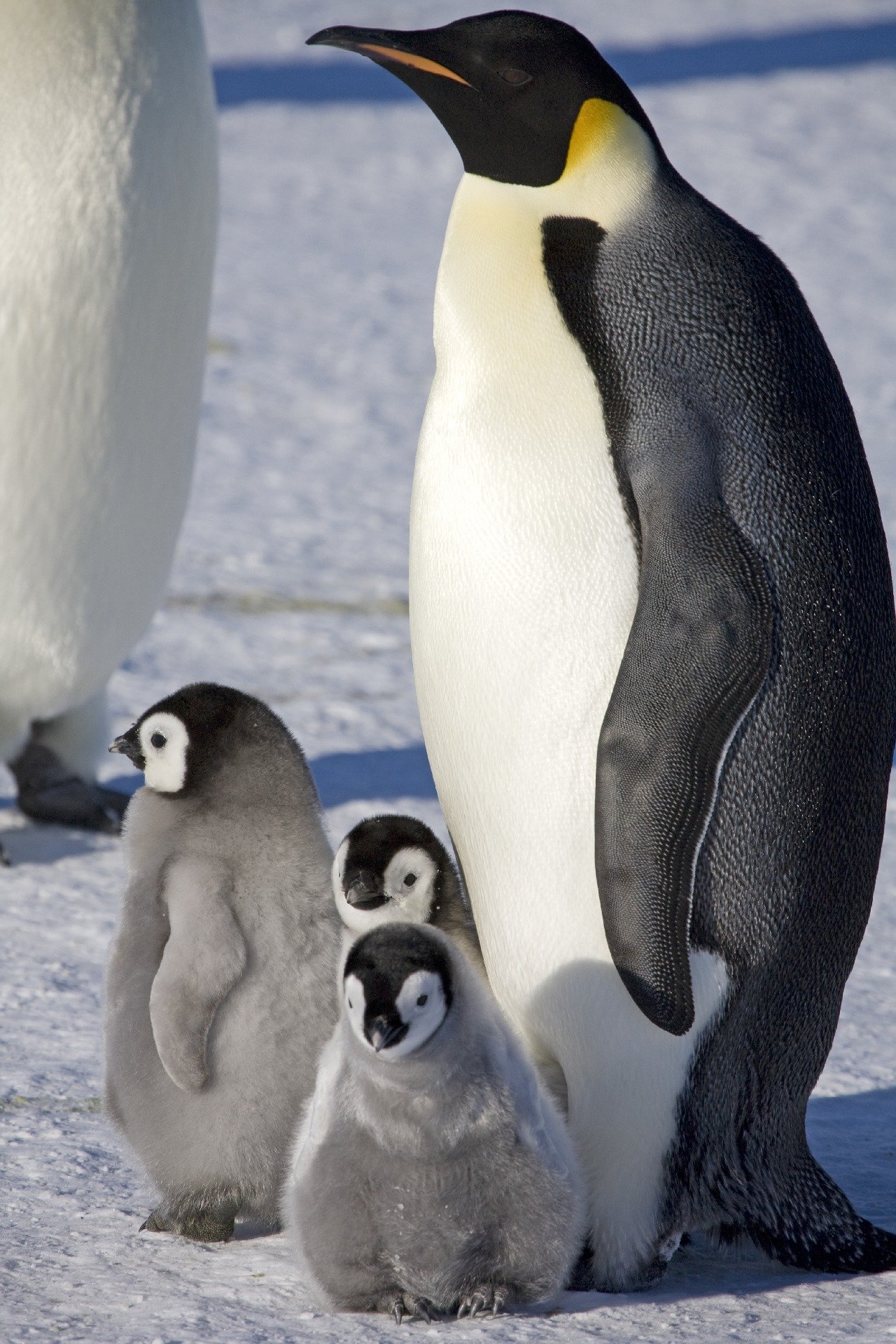In a new study published this week (Wednesday 9 October) in the journal Biological Conservation, an international team of researchers recommends the need for additional measures to protect and conserve one of the most iconic Antarctic species – the emperor penguin (Aptenodyptes forsteri).
The researchers reviewed over 150 studies on the species and its environment as well as its behaviour and character in relation to its breeding biology. Current climate change projections indicate that rising temperatures and changing wind patterns will impact negatively the sea ice on which emperor penguins breed; and some studies indicate that emperor populations will decrease by more than 50% over the current century. The researchers therefore recommend that the IUCN status for the species be escalated to ‘vulnerable’; the species is currently listed as ‘near threatened’ on the IUCN Red List. They conclude that improvements in climate change forecasting in relation to impacts on Antarctic wildlife would be beneficial, and recommend that the emperor penguin should be listed by the Antarctic Treaty as a Specially Protected Species.

Lead author Dr Philip Trathan, Head of Conservation Biology at British Antarctic Survey, says: “The current rate of warming in parts of the Antarctic is greater than anything in the recent glaciological record. Though emperor penguins have experienced periods of warming and cooling over their evolutionary history, the current rates of warming are unprecedented. Currently, we have no idea how the emperors will adjust to the loss of their primary breeding habitat – sea ice. They are not agile and climbing ashore across steep coastal land forms will be difficult. For breeding, they depend upon sea ice, and in a warming world there is a high probability that this will decrease. Without it, they will have little or no breeding habitat.”
Greater protection measures will enable scientists to coordinate research into the penguins’ resilience to a range of different threats and stressors.
Dr Peter Fretwell, remote sensing specialist at British Antarctic Survey and co-author says: “Some colonies of emperor penguins may not survive the coming decades, so we must work to give as much protection as we can to the species to give them the best chance.”
[rand_post]
The UK, supported by a number of other countries whose researchers have engaged in this scientific work, notified the Antarctic Treaty Consultative Meeting at its 2019 meeting, held in Prague in July, that Emperor Penguins were threatened through the loss of their breeding habitat and that further protections should be developed. A similar paper has also been submitted to this year’s Commission for the Conservation of Antarctic Marine Living Resources, which meets in Hobart later this month, where the UK is also supporting a number of proposals to extend the coverage of Marine Protected Areas in the Southern Ocean.